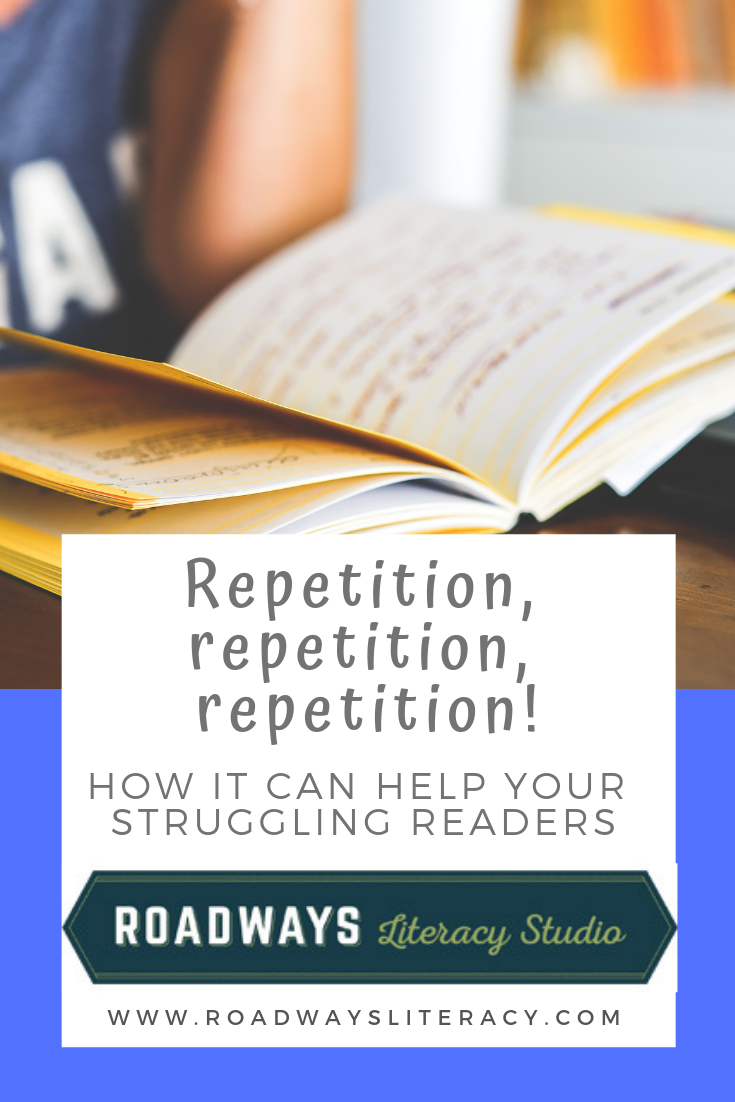Repetition, Repetition, Repetition.... Your struggling learners need more of it!
Have you ever thought about what it takes to solidify something new into your memory? Research shows that one of the key strategies is repetition. This is not a new idea – in fact, it is so old there is a Latin quote about it…. Repetitio mater studiorum est… ‘Repetition is the mother of all learning’.
Repetition isn't the flashiest or most exciting strategy for learning something new, but research shows that it is necessary. Repetition is required to transition a skill from the conscious level of understanding to the subconscious.
To put it another way, repetition increases automaticity. When you first learn a new skill, it takes a lot of energy and brain power to execute that skill. But your brain is wired for efficiency. Skills that you repeat over and over get moved to a different part of the brain where you don’t have to consciously think about executing that skill every time. The more you repeat it, the less you ‘think’ about it – the subconscious takes over and the skill becomes automatic.
Consider all the tasks you complete in a day without consciously thinking them through – brushing your teeth, pouring a glass of water, tying a shoe. These are all skills that you learned consciously, but through repetition their execution became automatic.
This is not just the case for physical skills. Academic skills such as learning the alphabet, reading words and phrases, and recalling facts become automatic through repetition as well.
You probably provide opportunity for repetition in your classroom already, but your struggling learners need more repetition that you think. How many repetitions are needed for most kids?
1-4 repetitions for gifted learners
1-10 repetitions for average learners
100+ repetitions for struggling learners
All repetition is not created equal. There are strategies you can use to improve the effectiveness of learning through repetition.
Repetition Spacing - Spacing repetitions over time is more effective than back to back repetitions. Research shows that if you teach a concept, and then review it several times over the space of days or even weeks your students’ ability to recall the concept will improve greatly.
Spiral Repetitions - Another approach is called spiral repetition, where you revisit concepts over the space months and years with increasing complexity at each repetition.
If you want to dig deeper into the research of spaced repetition in education, check out this interesting paper:
https://www.dartmouth.edu/~cogedlab/pubs/Kang(2016,PIBBS).pdf

